An Interview with Cecil McBee
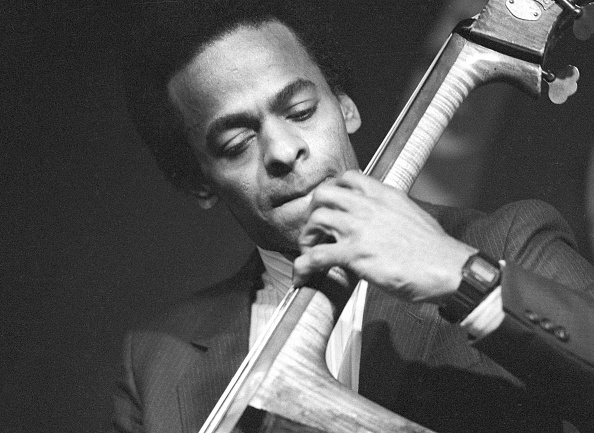
Musician Cecil McBee performing in San Francisco, California circa 1983 (Photo by Tom Copi/Michael Ochs Archives/Getty Images)
Cecil McBee may not only be one of the most prolific bass players in jazz, but one of the most inventive—his style of playing is immediately recognizable: melodic riffs that are unconventional but fit neatly into the larger motif of the composition, a technical mastery of the instrument displaying remarkable precision, making his excursions into unexpected territory all the more revealing of the expressive soul behind the music. His style exposes otherwise hidden passages that lurk inside the composition, making for melodious extensions of the main theme that complement and enrich the song, adding a dimension that animates rather than distracts.
His discography only tells part of the story, having appeared on well over 400 albums, working with most of the biggest names—from Miles Davis and Alice Coltrane, Wayne Shorter to Pharoah Sanders and Charles Lloyd to Herbie Hancock—but tells little of his uncanny ability to find and express the unrevealed heart of a composition.
I had the privilege of interviewing Mr. McBee recently, a conversation that will give even greater insight into the inner workings of the mind and soul of a creative genius whose legacy continues as he approaches his ninetieth year on our planet. I was struck by a man who was as humble and humorous as he was articulate and self-reflective:
TVP: You have this uncanny ability to create melodies within the larger theme of the piece that enhance the piece- what inspires- are these purely extemporaneous?
Cecil McBee: How I came about my quality of expression- I was a native of Tulsa- as a kid, most things were rather blank, socially, culturally, intellectually, after about 9 or 10, I was bored, even though the education and religious systems there were strong. In mid school, there was a display of instruments on a table-and as students, we got to hear professionals demonstrate them. I chose the clarinet. As I developed, I got popular, and became the “first chair” in mid school.
On entering high school, the first chair clarinetist was a young man named Ernie Fields, Jr. His father was a big band leader who was famous and successful, but during initial rehearsals, Fields junior sounded awful, and since he was a senior, the band leader (who happened to be his uncle) introduced me as his replacement since I was going to take over the position after “junior” graduated. I became “first chair” on the clarinet in high school. The clarinet was my influence.
TVP: You anticipated my next question—what other instruments influenced your voicing or the lines you played on the bass?
Cecil McBee: It was the clarinet. And the fingerings and placement of the notes in each hand are similar.
TVP: Tell us about how you came to play the double bass.
Cecil McBee: I switched to bass in high school—we were concluding band practice and I leaned over to put away my instrument- there was a bass fiddle on floor that was in the way of my clarinet case. I picked it up- and pulled the string, it reminded me of something I heard at a soda shop- somebody put some money in the juke box – “Swing Low” [1] with -Percy Heath playing bass.
Cecil McBee:
When I picked up the bass, I felt close to the instrument. We had jam sessions with some of my buddies. Word got around that I was a bassist. Jimmy Hawkins [2] took interest- word was I was a good bass player. Reality was, there were no bass players in town.
At that time, I was inspired by Percy Heath, who had a pronounced beat, fluidity, and tone.
TVP: One of the early recordings I have of you is an appearance with Mike Nock at Columbia in the late ‘60s which wasn’t released until a decade later.
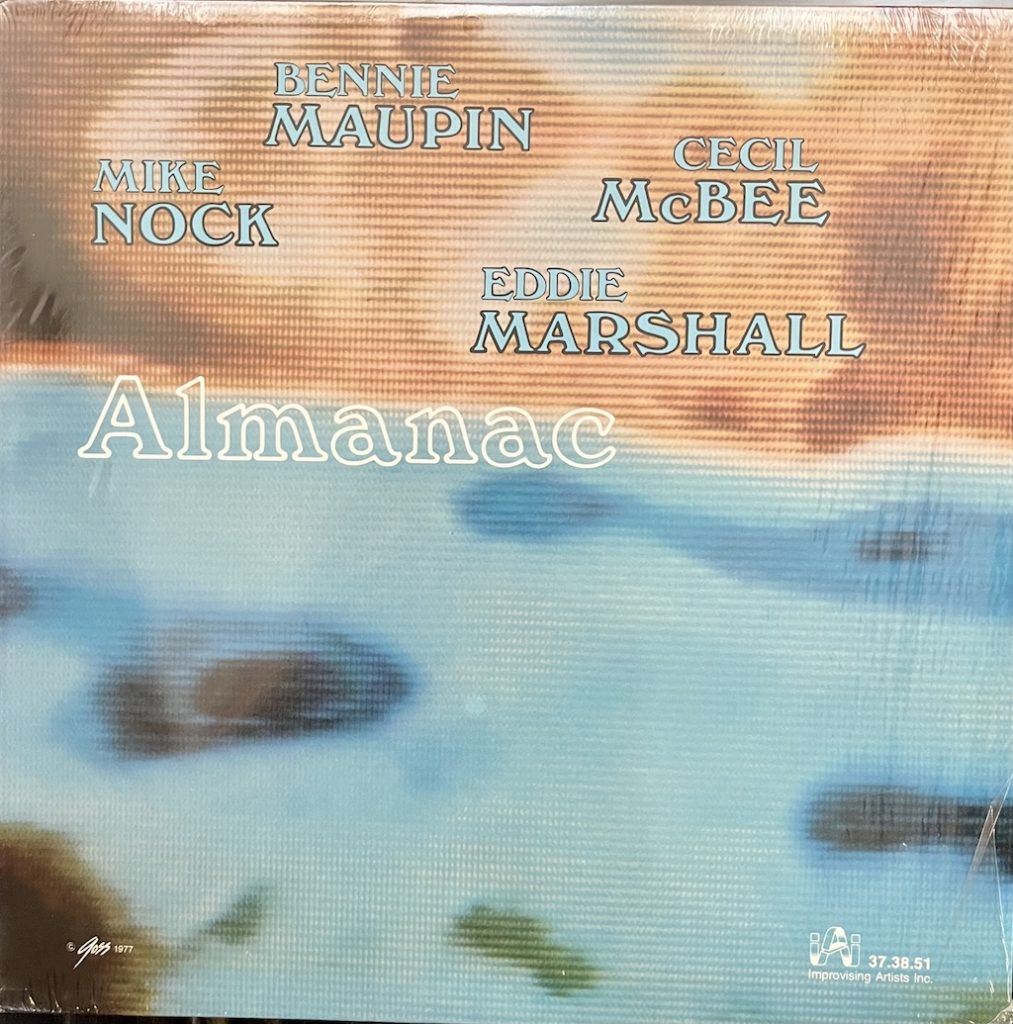
Cecil McBee: That was the first album I recorded in New York. Mike and I played a couple gigs. He wanted to do a recording. The bass I was using then is now lost. It was a challenge, measurably I did ok, but I was very conscious about my playing. When you are recording, every note is preserved, and the recording process opened my eyes to what I needed to work on.
TVP: When I asked Mr. McBee if his work on Alice Coltrane’s Journey In Satchidananda was his “break-out” record, commercially, he disabused me of that notion pretty quickly.
Cecil McBee: I had already done a record in Detroit – Boss: Bossa Nova,with George Bohanon, Kirk Lightsey and George Goldsmith on drums. It was a Berry Gordy and Motown effort to enter that market, which was hot at the time. I had also done an album with Denny Zeitlin called Cathexis, which was a very demanding effort.
Zeitlin was a virtuoso pianist in addition to being a professor of psychiatry. Denny was on a very high conceptual level, and the work commanded serious attention. That, in turn, led me to Jackie McLean on Blue Note, starting with It’s Time. I did a couple albums with him and started working with other Blue Note artists-including an album with Herbie Hancock (Some Other Stuff) and Wayne Shorter, who eventually brought me into his band. So, I’d say I was already established in jazz circles well before the Alice Coltrane record.
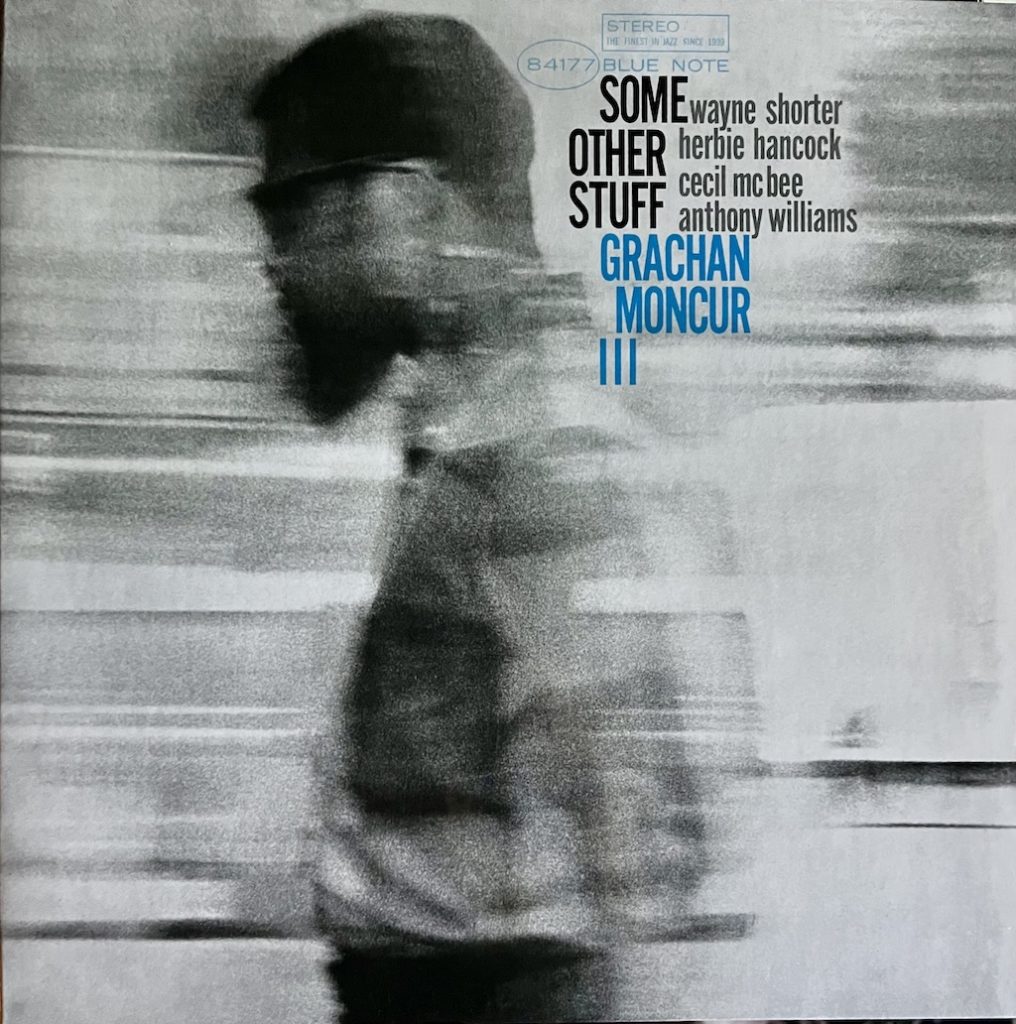
One of the scenes in New York at the time was Slugs’. It was a club in the lower east side that became a serious venue for jazz players. I got to know Charles Lloyd and joined his band. The Dreamweaver album was one of them. Forest Flower became one of the first jazz albums to sell over a million copies. (the talent included McBee, Keith Jarrett and Jack DeJohnette on both albums).
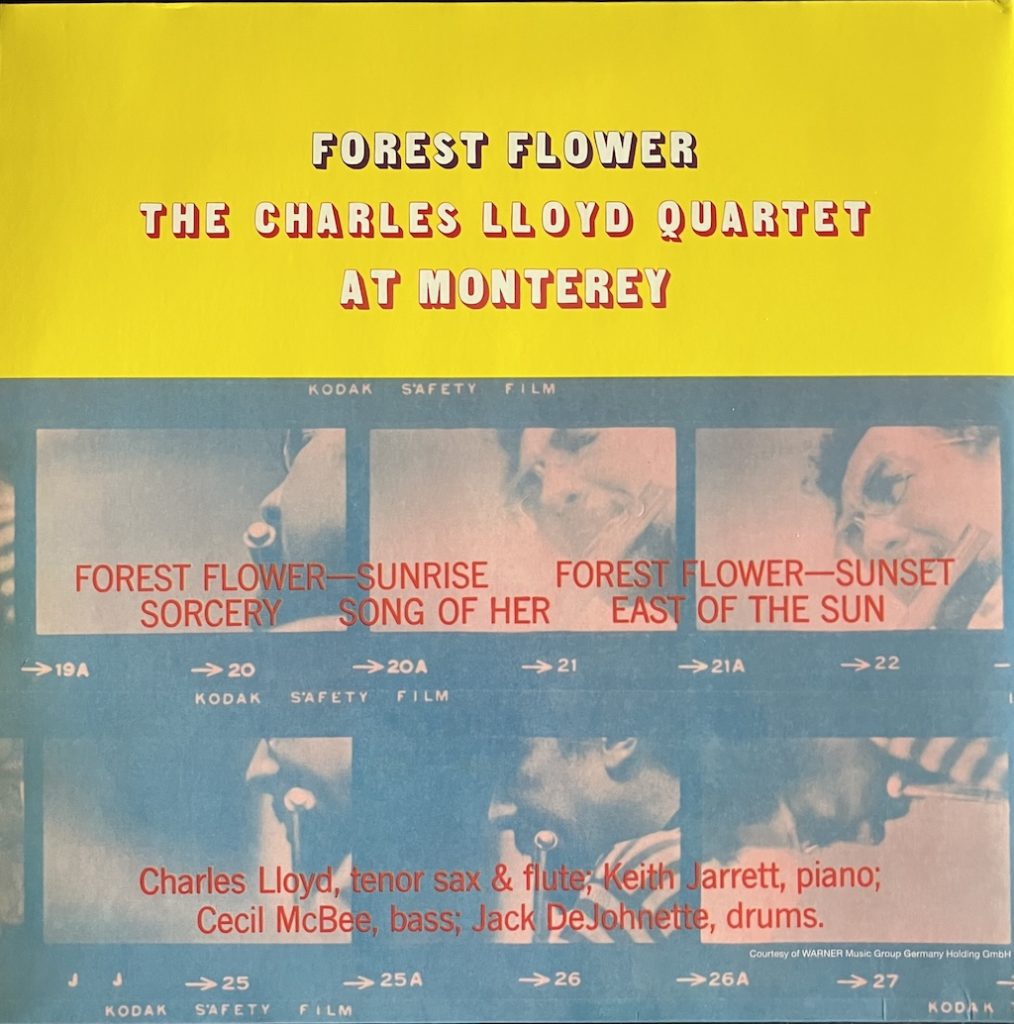
TVP: I mentioned Strata-East as an important label, perhaps a cornerstone of what is now called the “spiritual jazz” movement.
Cecil McBee: Strata-East gave us, as artists and composers, the latitude to explore our own paths. I did my first featured album there, Mutima.
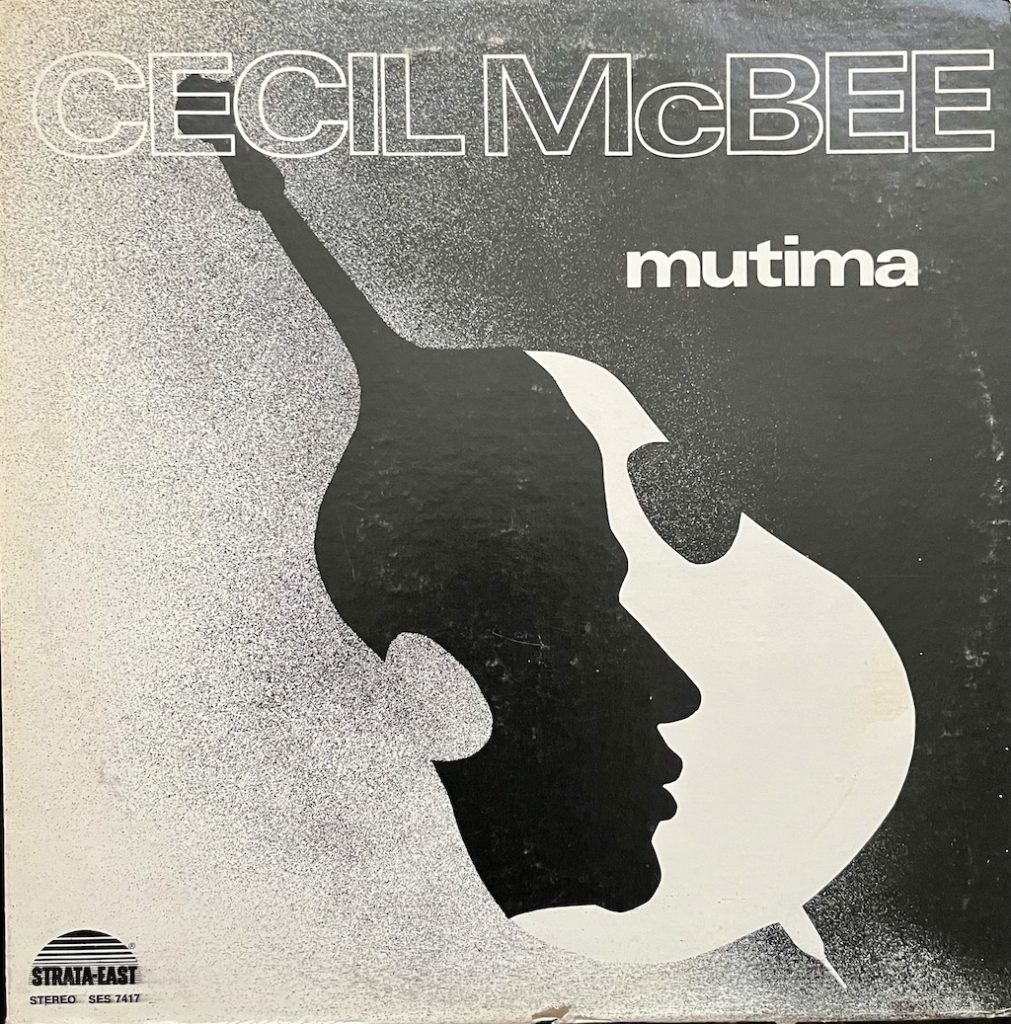
TVP: I recall reading about how you managed to play two double basses simultaneously on Mutima, which I thought was crazy—you had to have overdubbed, right?
Cecil McBee: I did a first take that I liked. I then did another take and decided I liked that too and overdubbed it.
[Ed. Note- Mr. McBee was somewhat surprised when I explained how valuable some of the Strata-East records are today—and are considered a touchstone, if not the motherlode, for the spiritual jazz movement that followed Coltrane’s A Love Supreme]
TVP: I mentioned that I found records that I loved that only in retrospect realized you performed on; one was Amina Claudie Myers Salutes Bessie Smith. The sound of her piano on the original recording is very true, and at some point, I realized, you played on it.
Cecil McBee: I met her socially through Sonny Rollins and played a few gigs with her in the Lower East Side.
TVP: One of my favorites—and I often play this for visitors who are not deeply into jazz as well as those who are, is that rendition of “Patricia” on Art Pepper Today with you, Stanley Cowell, Roy Haynes and Art Pepper. Each of you solo, and of course, Art Pepper is brilliant. But every listener, whether seasoned or not, is just blown away by that track.
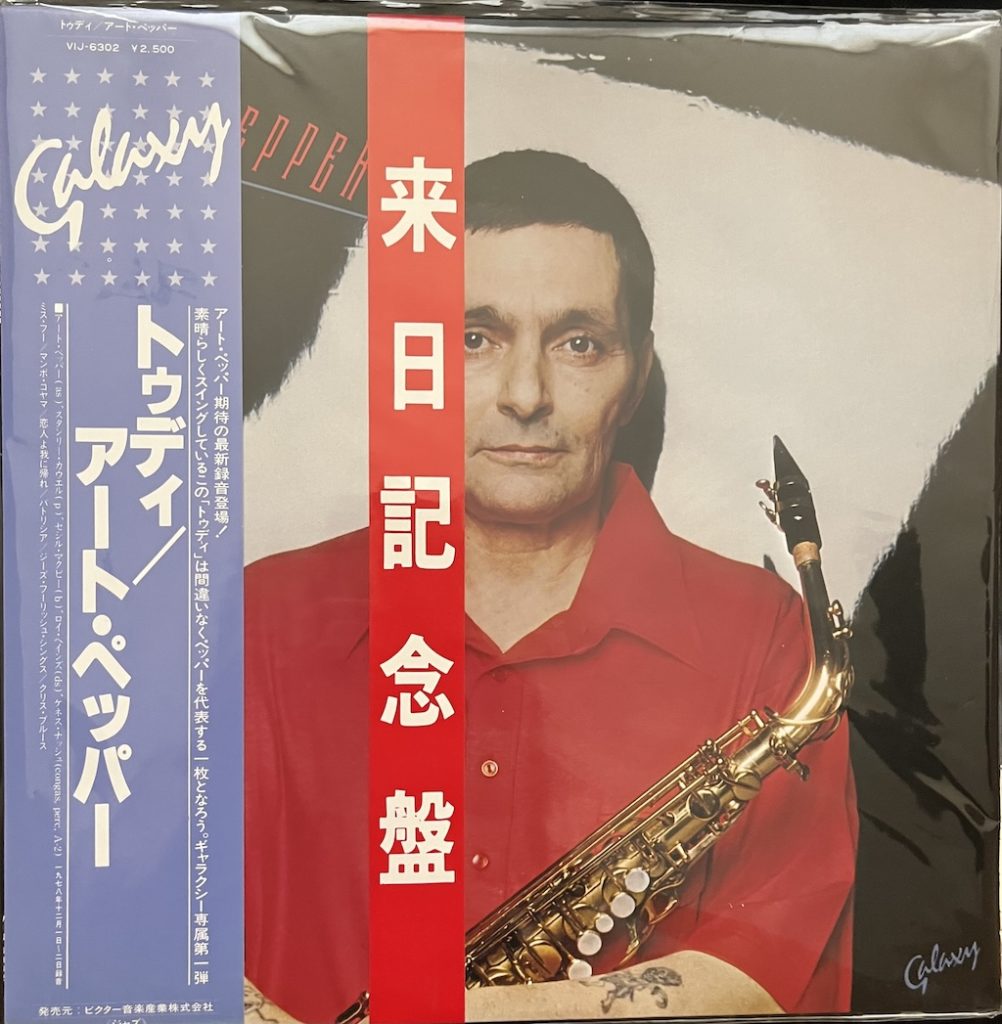
Cecil McBee: Art was an amazing player. And that group of musicians was, too.
TVP: Your solo on that track adds these little filigrees that are unpredictable but play off what Pepper is doing and fit perfectly. [Ed. Note -we digress a little when I talk about Janos Starker and his ability to play the notes dead on, without covering using vibrato]
Cecil McBee:
Clarity of tone and precision- he (Starker) became the instrument itself. When you step on the stage- be yourself and play you. You will feel much better. My bass was me. That was how I can talk.
TVP: You also released an album as a featured artist on India Navigation—Alternate Spaces—produced by Bob Cummins, who had a studio down the street from where I lived in the lower Hudson Valley. I know the self-titled Pharoah album was recorded there. How did you hook up with Cummins?
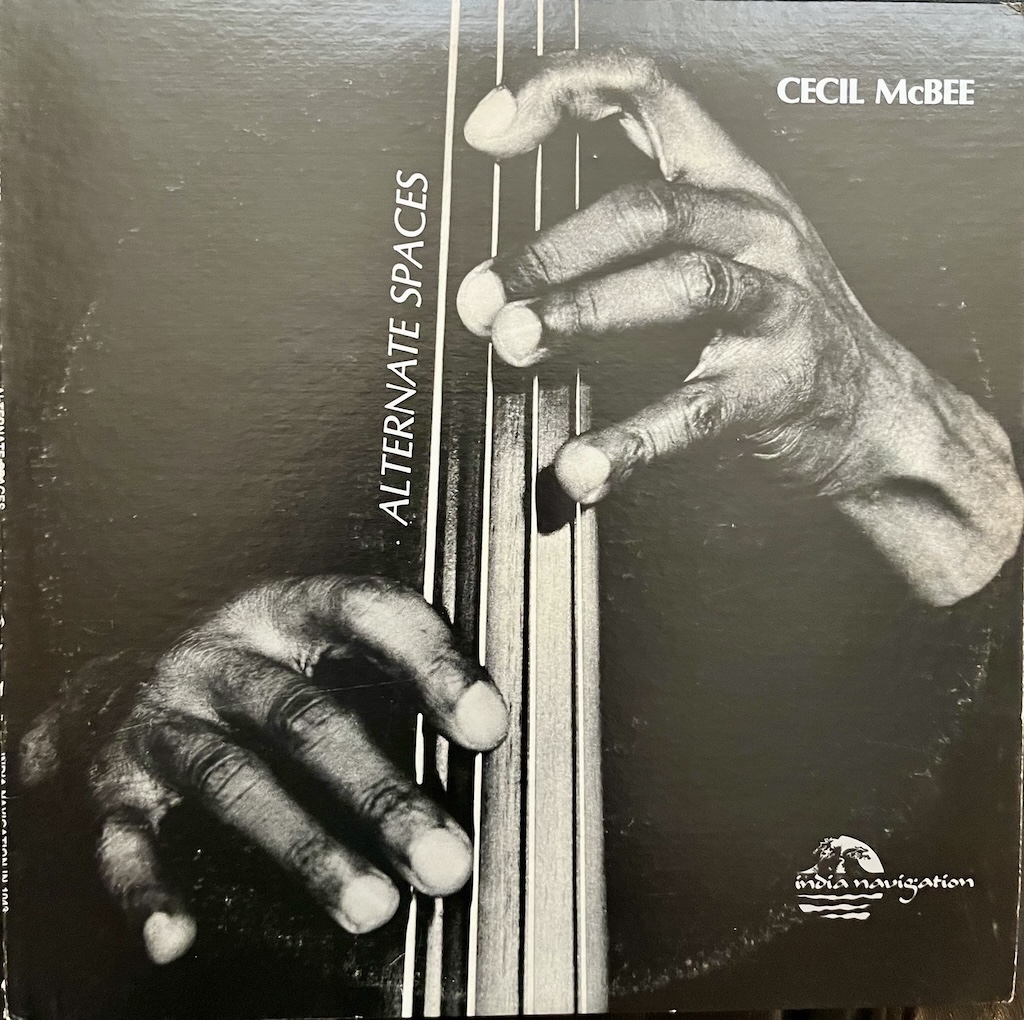
Cecil McBee: I was at Slugs’ with Wayne Shorter and Roy Haynes when Mr. Cummins was introduced; you know how it is, people socialize at these places, they are all there for the music but it is also a gathering place. It was after that, when I learned that a Japanese group of business people opened a chain of stores—they had some clothing line—and it was a big deal- 43 shops—called “Cecil McBee.” They even copied the stylized font of my name. I brought a lawsuit. It wasn’t a happy ending, that one.
TVP: You released The Cookers a few years ago and, in our conversation, you also mentioned that you still get together and play in public.
Cecil McBee: Yes, I still enjoy the journey, the exploration. I received criticism at the time in NY- because I did not play like others- but I was expressing myself- it is who I am and now, with the passage of time, I can look back and be proud that I was true to myself in my playing.
TVP: Is there any performance you delivered that you wished was recorded but was not?
Cecil McBee: I’m glad that most of them were recorded. I played with Joe Henderson at the Vanguard- Ron Carter couldn’t make it- Joe called and I stood in. I was told it was an unbelievable performance.
Wrap Up: Talking to Cecil McBee was one of those “moments” in life for me. I admire the man, I so enjoy his playing, his technique and his musicality, the unexpected twists that bring more to the song without straying off the path. My takeaway and the warmth of the man, even over the phone, left me with the feeling that I was speaking to a profoundly gifted musician who dug deeply into his own inner being to find unexpected musical threads; that what comes through his music—his way of expressing himself—is that he is truly a beautiful person.
I’m grateful that I was able to share that time and this conversation with him, and in turn, with readers.
Bill Hart
Austin, TX, 2025
____________________________________________________________________________
[1] This was not the spiritual standard, but instead, a rendition by Dizzie Gillespie’s of “Swing Low, Sweet Cadillac,” released in 1951. Percy Heath was already a renown bassist.
[2] Jimmy “Cry Cry” Hawkins was a significant figure in early rock and roll out of Tulsa who is considered a seminal band leader in the ‘50s. See Oklahoma Jazz Hall of Fame, https://jazzdepotlive.com/portfolio/jimmy-cry-cry-hawkins-2004/
Leave a Reply
You must be logged in to post a comment.